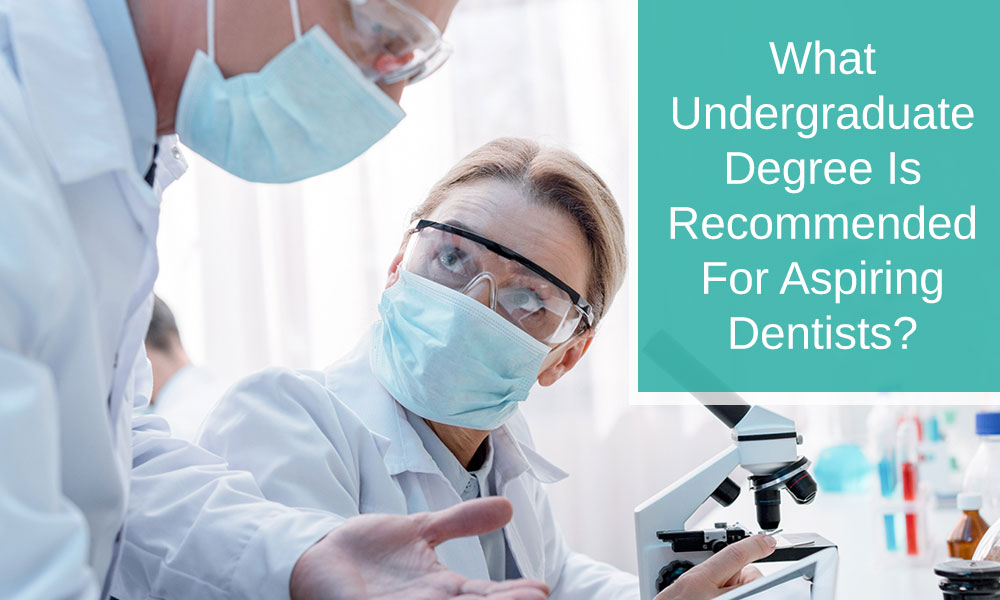
What undergraduate degree is recommended for aspiring dentists?
Embarking on the path to becoming a dentist is an exciting journey, and your choice of undergraduate degree lays the foundation for success in dental school and beyond. In this top 10 list, we’ll explore how and why each undergraduate degree is essential, offering unique advantages to aspiring dentists.
1. Biology:
Why It Matters:
- Foundation in Life Sciences: A biology degree provides a comprehensive understanding of anatomy, physiology, and microbiology, directly applicable to dentistry.
- Alignment with Dental Prerequisites: Biology degrees naturally incorporate coursework essential for dental school prerequisites, streamlining the academic path.
- Scientific Inquiry Skills: Emphasis on scientific inquiry and research skills fosters a mindset conducive to evidence-based dental practice.
2. Chemistry:
Why It Matters:
- Fundamental Chemical Knowledge: A chemistry degree equips dentists with essential knowledge of inorganic and organic chemistry, important for understanding dental materials.
- Precision and Analytical Skills: Chemistry programs emphasize precision and analytical skills, vital for dentists involved in intricate procedures and diagnostics.
- Interdisciplinary Understanding: Chemistry provides a broad understanding of the physical and chemical aspects relevant to dental sciences.
3. Biochemistry:
Why It Matters:
- Molecular Insight: Biochemistry degrees delve into molecular processes, offering a deep understanding of cellular and biochemical mechanisms relevant to dentistry.
- Integration of Biology and Chemistry: Biochemistry bridges biology and chemistry, providing a holistic perspective advantageous for aspiring dentists.
- Research Opportunities: The interdisciplinary nature of biochemistry opens doors to research opportunities, allowing exploration of cutting-edge advancements in dental sciences.
4. Biomedical Sciences:
Why It Matters:
- Holistic Approach to Healthcare: Biomedical sciences offer a holistic understanding of the human body, providing broad insights into medical aspects relevant to dentistry.
- Diverse Subject Exposure: Biomedical science degrees expose students to a range of subjects, fostering a comprehensive understanding of healthcare beyond the dental realm.
5. Health Sciences:
Why It Matters:
- Broad Healthcare Perspective: Health sciences degrees offer a broader perspective on healthcare, including public health and healthcare administration.
- Relevance to Dental School Prerequisites: While not as science-focused as biology or chemistry, health sciences can fulfill dental school prerequisites, providing a well-rounded foundation.
6. Psychology:
Why It Matters:
- Insights into Human Behavior: Psychology degrees bring insights into human behavior and communication, key skills for dentists working with diverse patient populations.
- Enhanced Interpersonal Skills: Understanding psychological principles enhances communication and patient relations, contributing to effective dental practice.
7. Anthropology:
Why It Matters:
- Cultural Understanding: Anthropology degrees provide cultural understanding and empathy, valuable traits for healthcare professionals, including dentists.
- Communication in Diverse Settings: Understanding diverse cultures prepares dentists to communicate effectively with patients from various backgrounds.
8. Business Administration:
Why It Matters:
- Entrepreneurial Skills: Business administration degrees equip aspiring dentists with entrepreneurial skills essential for those considering private practice.
- Management and Leadership: Understanding business principles, management, and leadership enhances the potential for a successful dental practice.
9. Volunteering:
Why It Matters:
- Demonstrates Commitment: Volunteering in healthcare or community service demonstrates dedication to helping others, a quality highly valued by dental schools.
- Contribution to Community Well-being: Engaging in volunteer activities showcases a commitment to community well-being, aligning with the values of the dental profession.
10. Research Opportunities:
Why It Matters:
- Enhanced Critical Thinking: Participation in research projects enhances analytical and critical thinking skills, valuable for academic success and future contributions to dentistry.
- Exploration of Advancements: Research experiences allow students to explore cutting-edge advancements in dental sciences, contributing to the evolution of the field.
Frequently Asked Questions
Can I pursue dentistry with any undergraduate degree?
Yes, dental schools accept applicants with various undergraduate degrees. The key is to ensure your chosen degree fulfills necessary prerequisites for dental school admission. The timing will also depend on the dentistry career you are choosing.
How important is my undergraduate GPA for dental school admission?
Undergraduate GPA is vital for dental school admission. A competitive GPA demonstrates academic capability and commitment to excellence.
Should I consider a dual-degree program?
Dual-degree programs offer unique opportunities but require careful consideration due to the extended duration and potential challenges in balancing coursework. It is also important to consider the educational paths to become a dentist.
Key Takeaways
Choosing the right undergraduate degree is a pivotal decision on your journey to becoming a dentist. Each degree offers distinct advantages, contributing to your academic success, skill development, and readiness for the challenges of dental school. Whether you opt for a science-focused or non-science degree, the key is alignment with dental school prerequisites and a balance between passion and practicality. Embrace the learning experience, stay dedicated to your goals, and anticipate the fulfilling career that awaits you in the dynamic world of dentistry.



